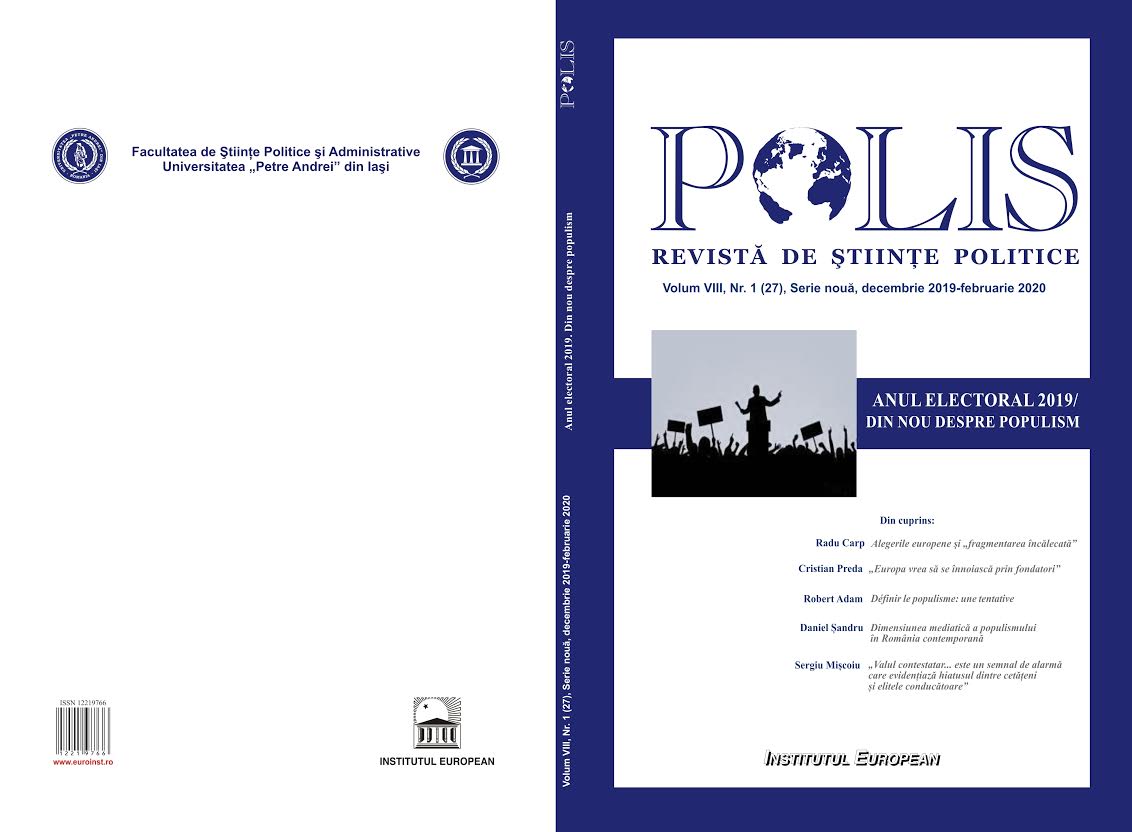Dimensiunea mediatică a populismului
în România contemporană
The media dimension of populism in contemporary Romania
Author(s): Daniel ŞandruSubject(s): Politics / Political Sciences, Politics
Published by: Editura Institutul European
Keywords: democracy; mass-media; populism; multimedia populism; democratization;
Summary/Abstract: In this study, I present the hypothesis that the democratic deficit whose main aspects were exposed during the previous chapters has decisively influenced both the evolution of the media and the democracy in post-communist Romania. In this regard, I intend, in a first section, to refer to some arguments of a normative nature, in order to support the importance of understanding the democratic ideology in the sense of a "thinking practice" that the media institutions – with all that they entail, from journalists to editorial policy – should share with society and its leaders so that the strengthening of the democratic regime can become a reality. More precisely, what interests us is the analysis of the way in which the media institutions have contributed to the articulation of the post-communist Romania public space, by referring to the trends existing today at European level and with reference to positioning citizens "outside" the media and political games whose stake is the establishment of the public agenda. We try to show the difficulties of establishing a public space in which to be transported and debated, and through the participation of the citizens, the democratic values, which went in the same cadence – when not directly influenced – with the institutional dysfunctions of the fragile Romanian democracy. The analysis I propose is carried out from the perspective of the process of politicizing the institutions and, thus, the media "agoras", both by creating "political-media complexes" that had as main result the "cartelization" of the press, both of the written and online one, as well as audiovideo one, as well as by developing a new type of journalistic discourse, which is in line with the one promoted in the political area, namely the populist discourse. The manner in which it is instilled in the public space through the media discourse is treated in the second section, starting from the distinction between "populism expressed by the media" and "populism through the media", which allows the intersection between politics and the media, as well as careful observation of the problems generated by it. The final section is devoted to the analysis of what we call "multimedia populism" or "E-populism", outlined even in the Romanian space of the last decade and which combines the "citizen journalism" encouraged by the classical media and their last attempt to be present on social networks.
Journal: Polis. Journal of Political Science
- Issue Year: VIII/2020
- Issue No: 1(27)
- Page Range: 73-124
- Page Count: 50
- Language: French

